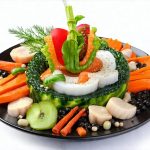Recovering from a urinary tract infection (UTI) or other urological infection can be physically draining, and proper nutrition plays a pivotal role in supporting your body’s healing process. Beyond antibiotics prescribed by your healthcare provider, what you eat and drink significantly impacts your urinary system’s ability to recover, reduce inflammation, and prevent future infections. A well-planned diet isn’t about restrictive limitations; it’s about strategically incorporating foods that bolster immune function, promote hydration, and minimize irritation. Understanding the connection between dietary choices and urological health is empowering during this vulnerable time.
This article will explore how to navigate dietary adjustments when recovering from a urological infection, focusing on supporting your body’s natural defenses and minimizing discomfort. We’ll discuss key foods to embrace, those to potentially limit or avoid, and practical strategies for staying adequately hydrated. It’s important to remember that these suggestions are general guidelines and should be discussed with your doctor or a registered dietitian, as individual needs vary based on the specific infection, overall health status, and any other underlying medical conditions. A personalized approach is always best when it comes to dietary recommendations.
Hydration & Supportive Fluids
Adequate hydration is arguably the most crucial aspect of recovering from a urological infection. Water helps flush out bacteria from the urinary tract, diluting urine and reducing irritation. Dehydration concentrates urine, making it more difficult for your body to eliminate pathogens and increasing discomfort during urination. Aiming for at least eight glasses (64 ounces) of water daily is a good starting point, but individual needs may be higher, especially if you experience fever or diarrhea. Beyond plain water, certain other fluids can also be beneficial. – Cranberry juice (unsweetened) has been traditionally associated with UTI prevention due to its potential to prevent bacteria from adhering to the urinary tract walls, though scientific evidence is mixed; it’s important not to rely on this as a primary treatment. – Herbal teas like dandelion or parsley tea act as natural diuretics, further supporting kidney function and flushing out toxins. However, be mindful of any contraindications with medications you may be taking. – Electrolyte-rich beverages can replenish fluids lost due to fever or diarrhea, aiding in overall recovery. Avoid sugary drinks, caffeinated beverages (coffee, soda), and alcohol, as these can irritate the bladder and worsen symptoms.
Maintaining consistent hydration throughout the day is more effective than attempting to drink large amounts at once. Keep a water bottle readily accessible and sip on it regularly. Monitoring your urine color is a simple way to gauge your hydration status: pale yellow indicates good hydration, while dark yellow suggests you need to drink more fluids. Remember that fluid intake should be adjusted based on activity level, climate, and individual health conditions. Prioritizing hydration is not merely about symptom relief; it’s fundamental for allowing your body to effectively combat the infection and restore urinary system function.
Foods That Promote Healing & Reduce Inflammation
While staying hydrated is paramount, incorporating specific foods into your diet can further enhance recovery. Anti-inflammatory foods are particularly beneficial as they help reduce irritation within the urinary tract and support immune function. – Berries (blueberries, strawberries, raspberries) are rich in antioxidants that combat inflammation and protect cells from damage. – Fatty fish (salmon, tuna, mackerel) provide omega-3 fatty acids, known for their anti-inflammatory properties. – Leafy green vegetables (spinach, kale) offer vitamins, minerals, and antioxidants essential for overall health and immune support. – Probiotic-rich foods (yogurt with live cultures, kefir, fermented vegetables) promote a healthy gut microbiome, which plays a vital role in immune function. A strong immune system is better equipped to fight off infection. Considering the importance of dietary planning, exploring options like a weekly urology meal plan can be incredibly helpful.
Foods rich in vitamin C can also bolster the immune system. Citrus fruits, bell peppers, and broccoli are excellent sources of this essential nutrient. Furthermore, incorporating foods with natural diuretic properties can help flush out bacteria. Asparagus, cucumbers, and watermelon can gently encourage urine production without overly irritating the bladder. Conversely, it’s wise to limit or avoid foods that can exacerbate inflammation or irritate the urinary tract. These include spicy foods, processed foods, sugary snacks, alcohol, caffeine, and artificial sweeteners. Paying attention to how different foods affect your body and adjusting your diet accordingly is key to a comfortable recovery.
Managing Bladder Irritation
Bladder irritation is a common symptom of urological infections, causing frequent urination, urgency, and discomfort. Dietary adjustments can significantly reduce these symptoms by avoiding substances known to irritate the bladder lining. – Acidic foods like citrus fruits, tomatoes, and vinegar can trigger bladder spasms and increase urgency in some individuals. While vitamin C is beneficial for immunity, moderate consumption or choosing less acidic sources of the vitamin may be necessary during recovery. Understanding safe ways to introduce citrus can help navigate this balance. – Caffeine and alcohol are diuretics that can further irritate the bladder and worsen symptoms. Eliminating these substances from your diet temporarily can provide significant relief. – Artificial sweeteners have been linked to bladder irritation in some individuals. Opting for natural sweeteners like honey (in moderation) or avoiding sweetening altogether is preferable.
Identifying personal triggers is essential, as sensitivity varies greatly between individuals. Keeping a food diary and tracking symptom fluctuations after consuming different foods can help pinpoint specific irritants. Gradual reintroduction of potentially irritating foods after the initial recovery phase allows you to assess your tolerance levels. It’s also important to consider portion sizes; even bladder-friendly foods can cause discomfort if consumed in excessive amounts. Ultimately, minimizing bladder irritation is about creating a dietary approach tailored to your individual sensitivities and needs.
Supporting Kidney Function
The kidneys play a vital role in filtering waste products from the body, including bacteria and toxins produced during infection. Supporting kidney function through diet is crucial for efficient elimination and overall recovery. – Adequate hydration (as discussed earlier) is paramount. Water helps flush out toxins and prevent the buildup of harmful substances in the kidneys. – Foods rich in antioxidants protect kidney cells from damage caused by inflammation and oxidative stress. Berries, leafy greens, and colorful vegetables are excellent choices. – Potassium-rich foods like bananas, sweet potatoes, and avocados help regulate fluid balance and support kidney function. However, individuals with pre-existing kidney conditions should consult their doctor before increasing potassium intake. For those needing to restrict potassium, exploring low-potassium diet tips is advisable.
Avoiding excessive protein consumption can reduce the workload on the kidneys. While protein is essential for tissue repair, consuming large amounts can strain the kidneys’ filtering capacity. A balanced diet with moderate protein intake is recommended. Limiting sodium intake also helps protect kidney function by preventing fluid retention and reducing blood pressure. Processed foods, fast food, and salty snacks are major sources of sodium that should be limited during recovery. Prioritizing a kidney-friendly diet isn’t about dramatically changing your eating habits; it’s about making mindful choices that support optimal renal health.
Boosting Immune Response
A robust immune system is essential for fighting off urological infections and preventing recurrence. Dietary adjustments can significantly strengthen the immune response, helping your body effectively combat pathogens. – Vitamin C-rich foods (citrus fruits, bell peppers, broccoli) stimulate white blood cell production, which are crucial for fighting infection. – Zinc plays a vital role in immune function and wound healing. Foods like oysters, beef, pumpkin seeds, and lentils are good sources of zinc. – Probiotic-rich foods (yogurt with live cultures, kefir, fermented vegetables) promote a healthy gut microbiome, which is closely linked to immune function. A balanced gut microbiome enhances the body’s ability to fight off infection. To further support immunity, consider urology diet support for a cold-weather immune boost.
Consuming adequate protein is also important for immune cell development and repair. Lean sources of protein like chicken, fish, beans, and lentils are preferable. Furthermore, limiting sugar intake can prevent immune suppression. High sugar consumption can impair white blood cell function and weaken the immune system’s ability to combat infection. A diet rich in whole foods, vitamins, minerals, and probiotics provides the building blocks for a strong immune response, allowing your body to effectively fight off urological infections and restore health.
Disclaimer: This article is intended for general informational purposes only and does not constitute medical advice. It is essential to consult with a qualified healthcare professional for any health concerns or before making any decisions related to your health or treatment.





















